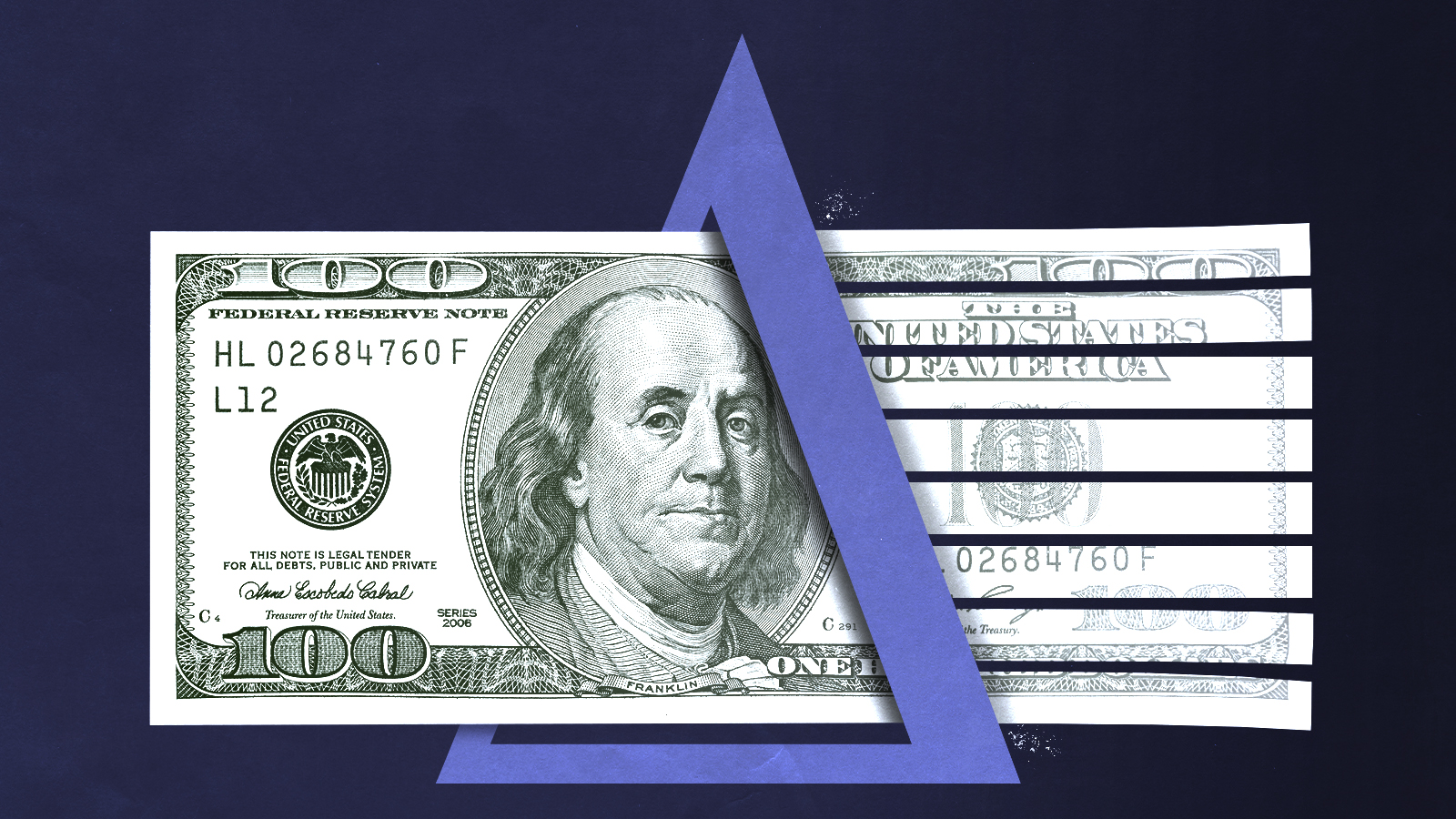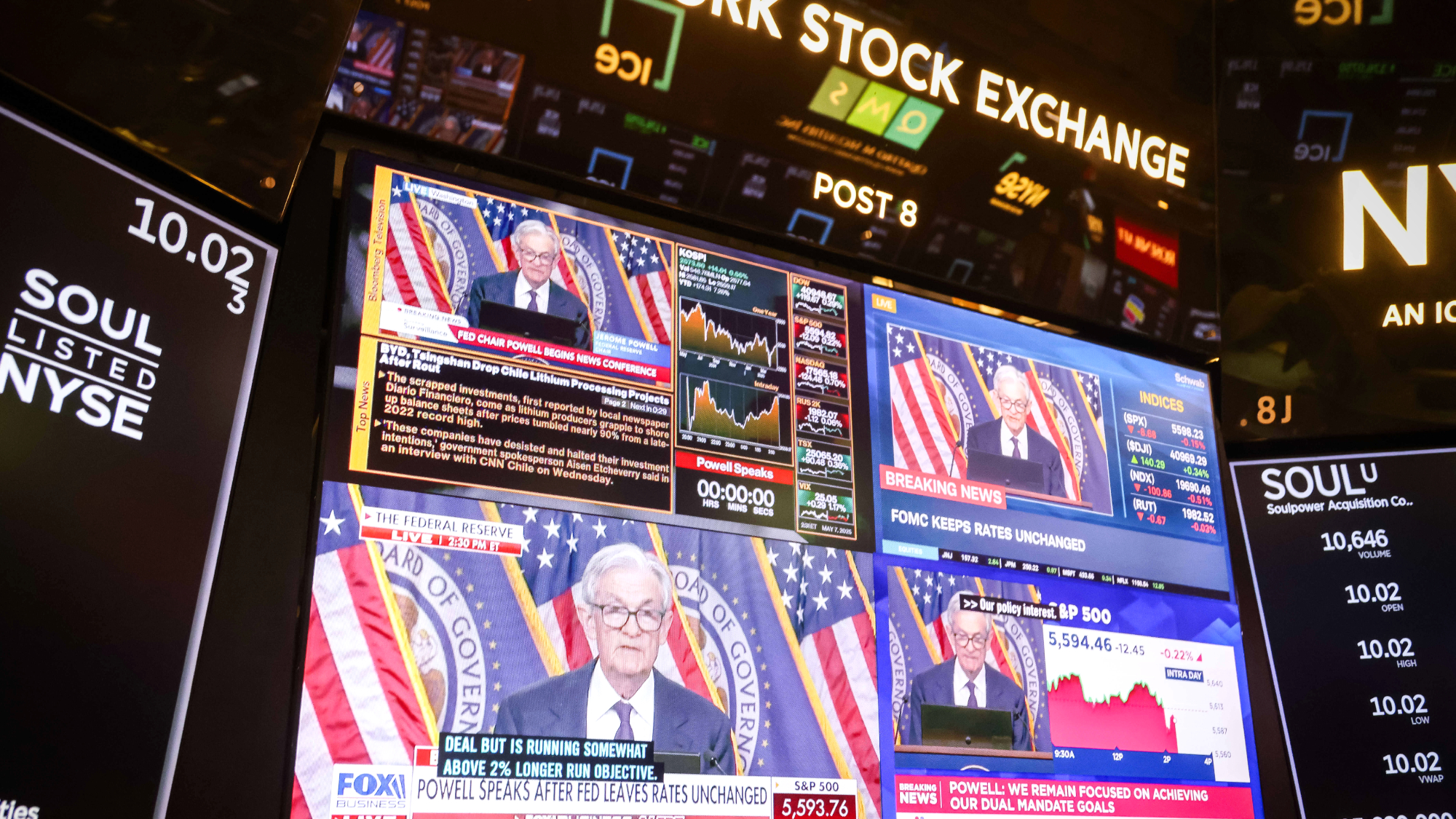Is the U.S. economy about to faceplant?
America just got rid of pandemic benefits while the pandemic is still raging


A free daily email with the biggest news stories of the day – and the best features from TheWeek.com
You are now subscribed
Your newsletter sign-up was successful
About 9 million Americans got kicked off their unemployment benefits Monday after the expiration of the super-unemployment provisions in the American Rescue Plan passed in March. This is likely the biggest cut in welfare benefits in American history. It's a cruel irony that it happened on Labor Day — supposedly a day of rest for the working class.
Worse, it raises the possibility of the economic recovery not just stagnating but going into reverse. If I were the Democratic Party, I would be reversing these cuts immediately.
The argument for extending these benefits is straightforward. Recall that the March super-unemployment program provided benefits to a much larger class of workers than the traditional unemployment system (which is stingy at best in most states, and straight-up nonfunctional in others), plus an additional $300 per week in benefits across the board.
The Week
Escape your echo chamber. Get the facts behind the news, plus analysis from multiple perspectives.

Sign up for The Week's Free Newsletters
From our morning news briefing to a weekly Good News Newsletter, get the best of The Week delivered directly to your inbox.
From our morning news briefing to a weekly Good News Newsletter, get the best of The Week delivered directly to your inbox.
The American economy has been suffering supply bottlenecks and labor shortages in several sectors, which led some business owners to start complaining bitterly about the unemployment boost. They argued that expanded benefits were enabling lazy workers to sit around instead of working to make profits for capitalists, and so they needed to be starved into jobs. On Fox News last month, Laura Ingraham asked Bar Rescue host Jon Taffer: "What if we just cut off the unemployment? … Hunger is a pretty powerful thing." He responded: "They only feed a military dog at night, because a hungry dog is an obedient dog. Well, if we are not causing people to be hungry to work..."
There is just one problem: Republicans already tried starving people into jobs, and it didn't work. Most conservative states decided to prematurely cut super-unemployment months ago, and a study from several economists found that while recipients saw their income decrease by an average of $13,728 per year, those states saw only a microscopic increase in people getting jobs. Worse, as Matt Bruenig demonstrates at the People's Policy Project, even that tiny increase is accounted for by newly-desperate unemployed people taking jobs that otherwise would have gone to people who were not on unemployment benefits. Cutting off super-unemployment did nothing whatsoever to get people into jobs.
Meanwhile, with the Delta variant of COVID-19 running completely out of control across half the country, most people are hunkering down like they did during previous viral surges — cutting back on flights, indoor dining, and other in-person activities. Surveys indeed show that consumer spending has fallen considerably from where it was in June and July.
Sure enough, where June and July this year each saw about a million new jobs created, August saw only 235,000 — and now billions and billions of dollars of spending just got sucked out of circulation. America is still 5.3 million jobs short of where it was before the pandemic. At the August rate it would take until about June 2023 to get back to the pre-pandemic status quo — and that's if job creation doesn't slow down even more. That possibility should be totally unacceptable.
A free daily email with the biggest news stories of the day – and the best features from TheWeek.com
It's not yet entirely clear why there are so many problems in the labor market, but the pandemic is undoubtedly at the root of the problem. Because of the FDA's inexcusable tardiness in approving the coronavirus vaccines for children, schools across the country have become COVID factories, forcing many parents to care for their kids at home instead of working. Other workers have been burned out working in so-called "essential" jobs with meager pay and benefits, or simply can't take the stress anymore. Hospitals are bleeding all kinds of staff, particularly nurses.
Those are real problems — but none of them can be solved by slashing unemployment benefits. All that is going to do is cause people additional pain and suffering and delay a full economic recovery.
I also should note in passing that it is never necessary to starve people into the labor market in a rich country like the U.S. — the Nordic countries have both much more generous unemployment and other welfare benefits and a higher rate of participation in the labor market than America.
At any rate, the reason the American Rescue Plan was passed was the same reason the CARES Act was passed a year previously — the pandemic was not over. Most Democrats seem to have assumed, as I did this spring, that the widespread availability of vaccines would blunt the pandemic enough that America could get back to something like normal by now. Alas, that was wrong. Most Americans have done the right thing, but as David J. Roth writes at Defector, a "wild and self-wounding intransigence; the invasive bloom of an unreasoning and recursive spite in the wreckage left by a willed and willful collapse of civic faith" among a minority have left the U.S. far, far short of herd immunity.
Rule of thumb: A program to address an emergency should last at least as long as the emergency itself. If it was necessary to pass a pandemic rescue back on March 11 when there were about 55,000 coronavirus cases per day, it stands to reason that we should still need those same rescue programs when cases are running about 160,000 per day. If Democrats had any sense, they would add an extension of pandemic benefits to the reconciliation package currently under discussion, and pass it immediately.
Ryan Cooper is a national correspondent at TheWeek.com. His work has appeared in the Washington Monthly, The New Republic, and the Washington Post.
-
 Political cartoons for February 15
Political cartoons for February 15Cartoons Sunday's political cartoons include political ventriloquism, Europe in the middle, and more
-
 The broken water companies failing England and Wales
The broken water companies failing England and WalesExplainer With rising bills, deteriorating river health and a lack of investment, regulators face an uphill battle to stabilise the industry
-
 A thrilling foodie city in northern Japan
A thrilling foodie city in northern JapanThe Week Recommends The food scene here is ‘unspoilt’ and ‘fun’
-
 The billionaires’ wealth tax: a catastrophe for California?
The billionaires’ wealth tax: a catastrophe for California?Talking Point Peter Thiel and Larry Page preparing to change state residency
-
 Bari Weiss’ ‘60 Minutes’ scandal is about more than one report
Bari Weiss’ ‘60 Minutes’ scandal is about more than one reportIN THE SPOTLIGHT By blocking an approved segment on a controversial prison holding US deportees in El Salvador, the editor-in-chief of CBS News has become the main story
-
 Has Zohran Mamdani shown the Democrats how to win again?
Has Zohran Mamdani shown the Democrats how to win again?Today’s Big Question New York City mayoral election touted as victory for left-wing populists but moderate centrist wins elsewhere present more complex path for Democratic Party
-
 Millions turn out for anti-Trump ‘No Kings’ rallies
Millions turn out for anti-Trump ‘No Kings’ ralliesSpeed Read An estimated 7 million people participated, 2 million more than at the first ‘No Kings’ protest in June
-
 Ghislaine Maxwell: angling for a Trump pardon
Ghislaine Maxwell: angling for a Trump pardonTalking Point Convicted sex trafficker's testimony could shed new light on president's links to Jeffrey Epstein
-
 The last words and final moments of 40 presidents
The last words and final moments of 40 presidentsThe Explainer Some are eloquent quotes worthy of the holders of the highest office in the nation, and others... aren't
-
 Fed leaves rates unchanged as Powell warns on tariffs
Fed leaves rates unchanged as Powell warns on tariffsspeed read The Federal Reserve says the risks of higher inflation and unemployment are increasing under Trump's tariffs
-
 The JFK files: the truth at last?
The JFK files: the truth at last?In The Spotlight More than 64,000 previously classified documents relating the 1963 assassination of John F. Kennedy have been released by the Trump administration
